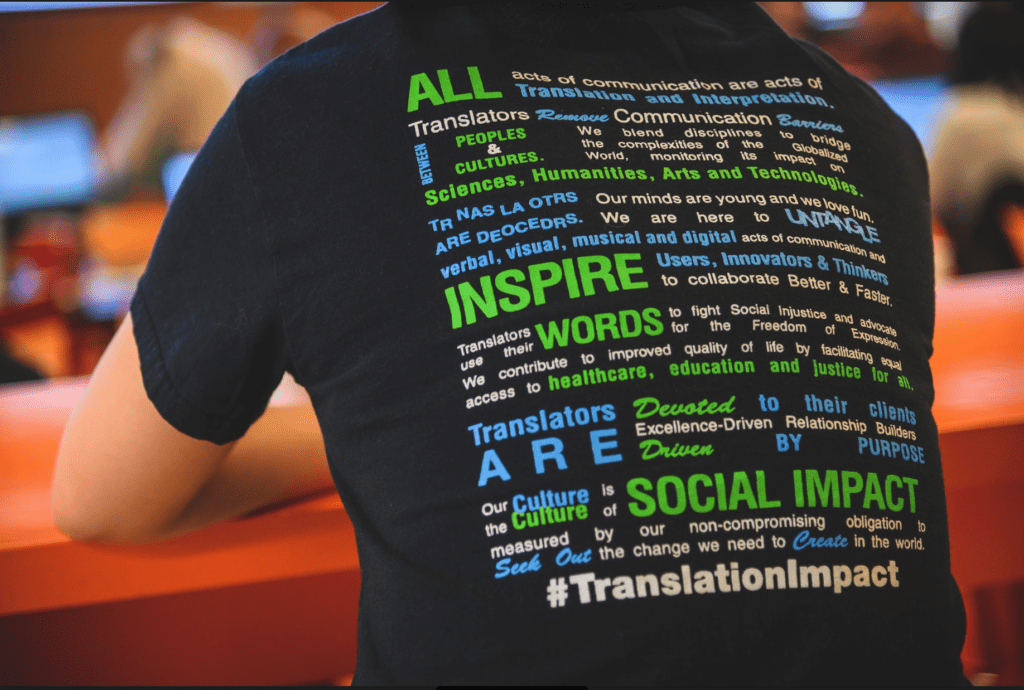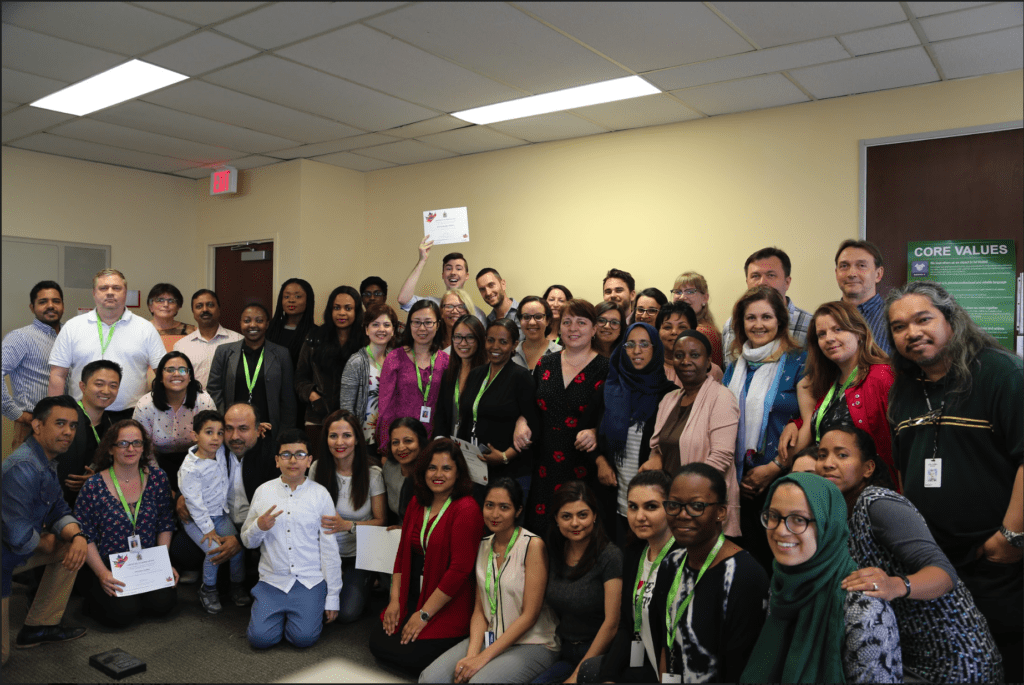Language matters: Connecting people through languages at MCIS
Language is key to communication. The importance of language is intrinsically linked to every aspect of everyday life, particularly with respect to accessing vital services and information. Language barrier remains one of the most challenging issues affecting various groups of the population, including minorities, new Canadians, and refugees. Therefore, urgent action is needed to improve access to critical information and services that support the rights, safety, and wellbeing for those with language barriers.
MCIS Language Solutions is a non-profit social enterprise that has provided high quality translational and interpretation services for the past 30 years. Originally a non-profit, MCIS has evolved over the years to become a model social enterprise, driven by its mission to improve access to critical information and services through the use of a wide range of translational solutions ranging from language interpretation, translation, transcription, localization and training development. Each year, MCIS invests some of its net income into initiatives that support free services for those in need, and to provide training subsidies for aspiring interpreters and translators with the goal of generating positive social change. With 60 full time staff and a roster of over 6,000 language professionals, MCIS builds on the principles of language equity and justice by connecting people globally through languages.
SDGs at MCIS
Nicole Fiorillo is a past participant of the SDG Cities Academy and currently works as the Policy, Outreach and Social Purpose Specialist at MCIS. Nicole says that attending the Academy has helped her to better understand the SDGs and given her the opportunity to learn from other organizations’ work on advancing the SDGs. Nicole points out that one key takeaway for her is
“[The SDG Cities Academy] was very helpful to see SDGs can be localized from an international level to a local level. At MCIS, we started to think about how we could translate the SDGs into our day-to-day operations which helped us to see that our work has a greater reach.”
Nicole Fiorillo, Policy, Outreach and Social Purpose Specialist at MCIS.
After participating in the Academy, Nicole led MCIS staff through a series of workshops to introduce the SDG framework. These workshops aimed to spread awareness on the global efforts being made towards achieving sustainable development and to engage staff members in Social Impact Initiatives with the overarching aim of developing a strategy to implement the SDGs at MCIS. By aligning with the universal values of the SDGs, including human based approach and leaving no one behind, MCIS prioritizes SDGs 3, 10, and 16 to further its organizational goals and impact.

Addressing Language Access to advance the SDGs
MCIS is committed to social purpose aiming to uphold the human right to be informed, heard and understood. Their work to advance the SDGs takes place through delivery of free services, capacity building amongst staff and language professionals and advocacy.
Free language services provided in health care settings contribute to SDG 3 by ensuring that people with low fluency can communicate clearly and directly with their healthcare provider. Newcomers, refugees and others who face language barriers can struggle to access the right kind of care and to advocate for themselves. Language services have the potential to reduce these barriers leading to greater health equity. In addition to direct services provided in healthcare settings, MCIS is also advocating for policy shifts at government and institutional levels that would help decrease language barriers faced when accessing healthcare.
The Covid-19 pandemic led to new language access challenges. MCIS language professionals pivoted to address these emerging needs, providing translation and interpretation services to help minority languages speakers understand changing public regulations and protocols, learn about new social benefits and taxation policies, understand government information, maintain their mental health, and participate in conversations about pandemic related social and economic impacts. In 2021, over half of translation assignments related directly to public health and the Covid-19 pandemic.
MCIS’ Social Benefit Fund (SBI) focuses on supporting individuals affected by language barriers and contributes directly to SDG 10 which aims to reduce inequalities and ensure equal opportunities for all. Language barriers can perpetuate existing inequalities and prejudices in society by limiting employment opportunities and social integration. As a result, this leads to the exclusion of individuals with language barriers from equitable participation in education, healthcare, welfare, and many aspects of social life.
Advocacy work is also a key piece of MCIS’ SBI funded work. As a member of the Language Advocacy Coalition of Canada, MCIS supports Canadian Language Advocacy Day which brings together language rights advocates and stakeholders across Canada to collaborate on projects and share learnings that promote language rights and justice. Additionally, MCIS is also actively working towards SDG 16 by advocating for public policies and strategic partnerships and communications that advance language rights through initiatives that challenge existing systems and policies that create oppression and inequality. Through these initiatives, MCIS staff members engaged 79 organizations and over 4,000 individuals in conversations, sharing information and creating opportunities that promote peaceful and inclusive societies. In a similar vein, MCIS is a leader in advocating for public and private sector policy that promotes diversity, equity and inclusivity (DEI) and is committed to the mission of striving for an environment that puts sustainable development at the forefront of their agenda.

The way forward
The SDGs have provided a valuable framework for MCIS to think strategically about how they are creating a positive impact on society; however, the full implementation of the SDGs will not happen overnight. Moving forward, MCIS recognizes that an organization wide effort is needed to fully implement the SDGs. As Nicole points out it is important for MCIS to collaborate with different organizations and stakeholders from various sectors, such as healthcare, education, and law, to enhance capacity building and to achieve the SDGs through improved language access.
MCIS will continue to focus its impacts on bridging language barriers through improved access to language services, increasing capacity and raising awareness about language barriers and the required support to address these challenges in the form of programs, policies, and funding. In the short term, MCIS is working towards the goal of reporting on the progress of its priority SDGs by selecting relevant indicators to measure impacts and analyzing performance against their priority SDGs.
For more information, you can check out MCIS’ website!
Check out the recently published SDG Local Impact Report for MCIS!

